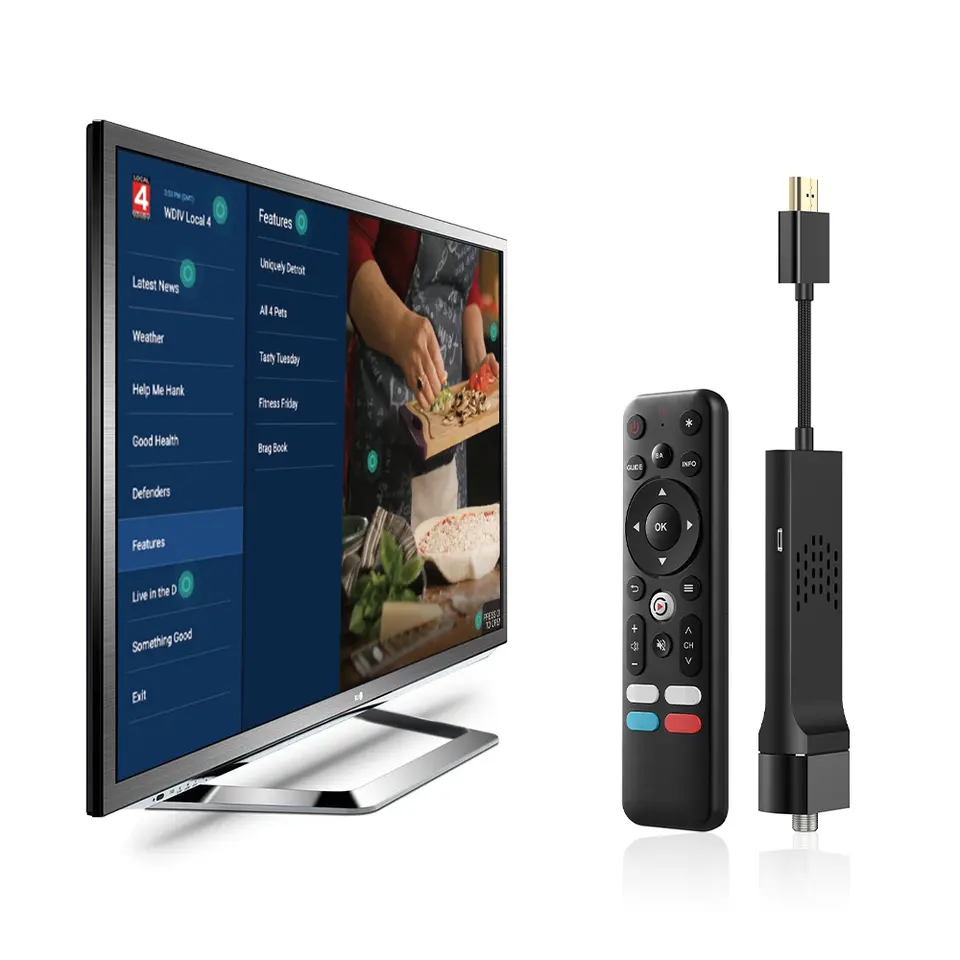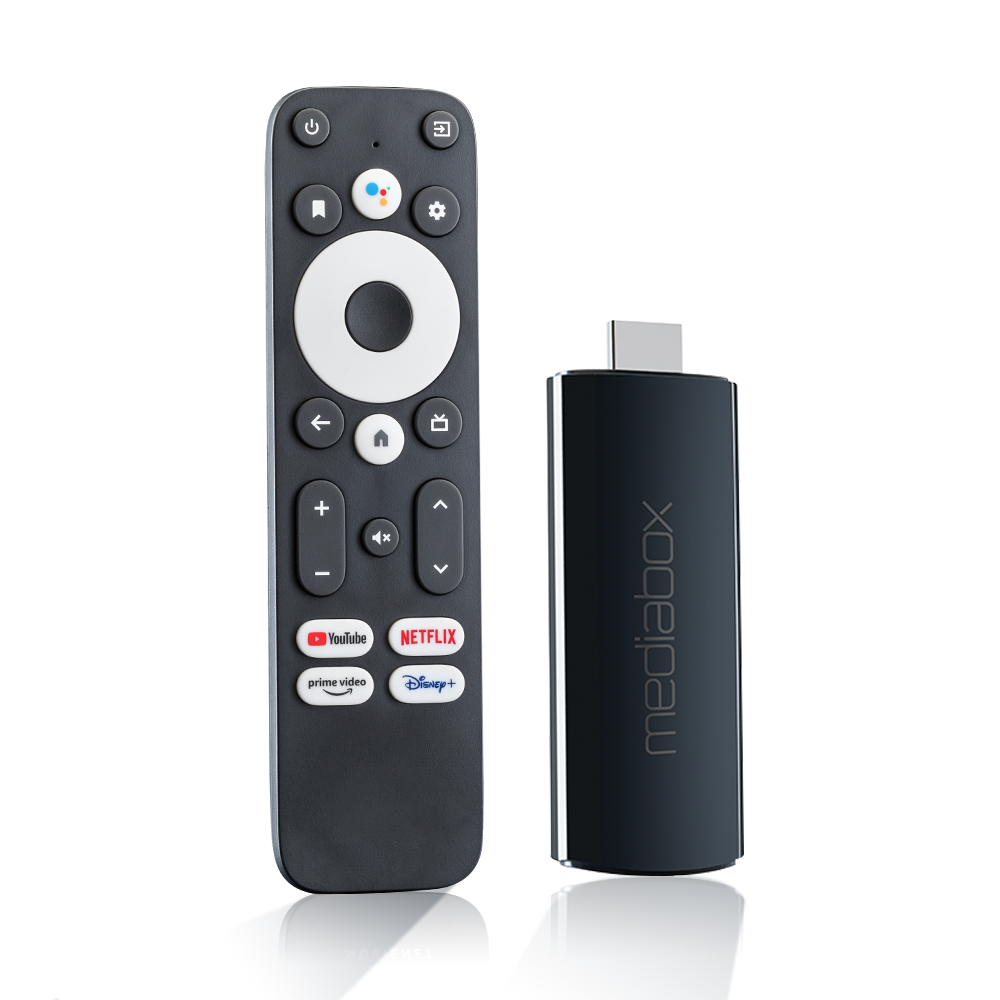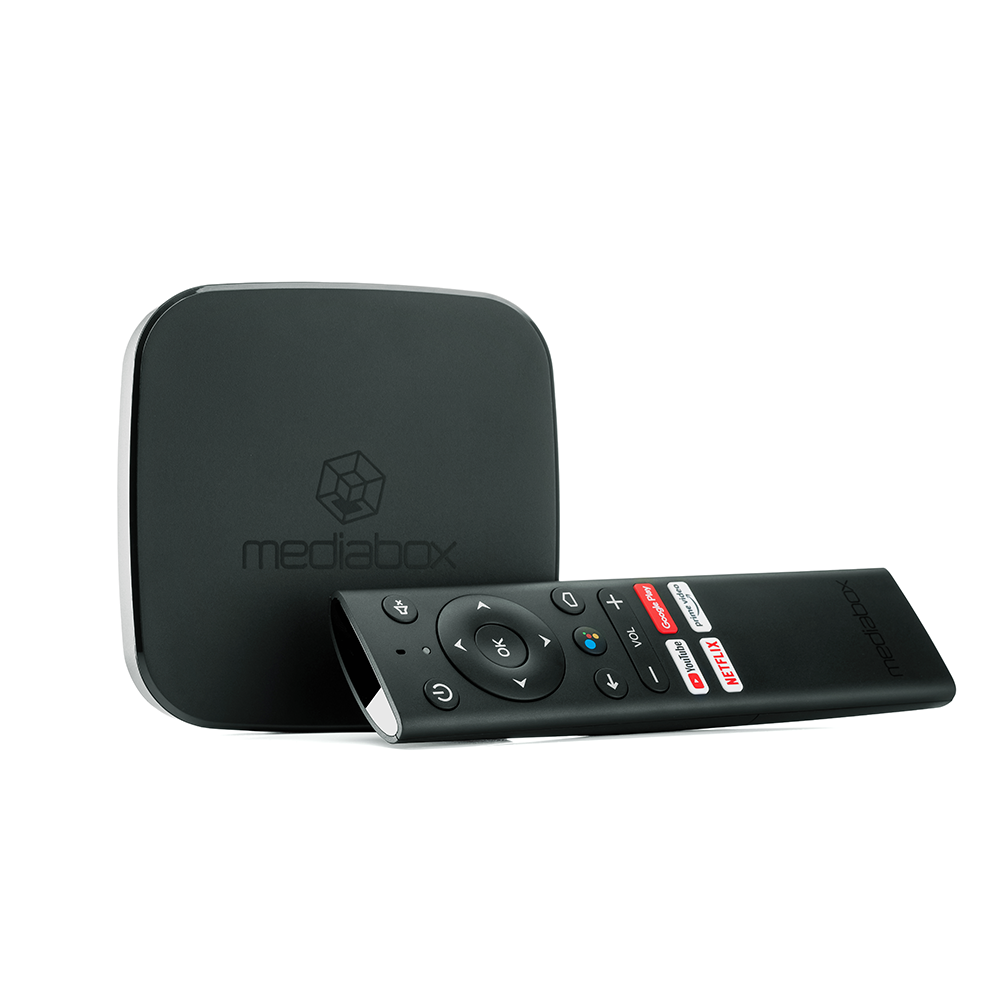







NextGen TV ATSC 3.0 4K Tuner A02
ATSC 3.0 Converter TV Box
ATSC 3.0, also known as NextGen TV, is the latest digital television broadcasting standard developed by the Advanced Television Systems Committee (ATSC). It introduces several key features and improvements compared to its predecessor, ATSC 1.0. Here are some of its characteristics:
- Enhanced Video and Audio Quality
- Interactivity and Personalization
- Robustness and Flexibility
- Mobile Reception and Mobility
- Hybrid Broadcast-Broadband Capabilities
- Emergency Alerting and Public Safety
- Energy Efficiency
- Scalability and Future-Proofing
Overall, ATSC 3.0 represents a significant leap forward in television broadcasting technology, offering broadcasters and consumers a range of new capabilities and opportunities for enhanced viewing experiences.
1. Visit our website and find the products you are interested in;
2. Send inquiry (fill in your correct email and WhatsApp);
3. Communicate with our expert team (we will contact you via email or WhatsApp within 24 hours);
4. Get the final price and confirm the order details (product price and shipping fee);
5. Complete payment (We accept T/T, Western Union, Credit Card, etc according to the exact order amount.);
6. Shipping (we will ship your order and send you a tracking number);
If you like, please leave us a review on Trustpolit.
Spot order:
Within 1-3 working days for standard stock products.
Futures order:
About 15-20 working days after we receive the 30% deposit and the customer confirms all OEM details.
1 year warranty, if you have any questions, you can contact us. Our engineers will patiently tell you how to solve it;
If the problem persists with the help of our engineers, you can return the defective product to us for repair. Then we will send the good items back to you as soon as possible.
1. Logo printing
2. Customized packaging
3. Software customization: launch images, UI, applications, functions, etc.
ATSC 3.0, also known as NextGen TV, is the latest digital television broadcast standard developed by the Advanced Television Systems Committee (ATSC). Here are some of its characteristics:
Enhanced Video and Audio Quality: ATSC 3.0 supports higher resolution video formats, such as 4K Ultra High Definition (UHD) and High Dynamic Range (HDR), providing viewers with a more immersive and visually stunning television experience. It also delivers immersive audio formats, including object-based audio, for enhanced sound quality.
Improved Efficiency: ATSC 3.0 utilizes more advanced modulation techniques and error correction coding, resulting in greater spectral efficiency and improved robustness against signal interference and multipath propagation. This allows broadcasters to deliver higher quality content while using less spectrum.
Interactivity and Personalization: ATSC 3.0 enables enhanced interactive features, such as on-demand content delivery, targeted advertising, and interactive applications, providing viewers with more personalized and engaging television experiences. Broadcasters can deliver content tailored to individual preferences and demographics.
Mobile Viewing: ATSC 3.0 includes support for mobile and handheld devices, allowing viewers to access broadcast content on smartphones, tablets, and other portable devices with greater flexibility and mobility. This enables seamless integration between broadcast and broadband services, providing viewers with access to content anytime, anywhere.
Advanced Emergency Alerting: ATSC 3.0 enhances emergency alerting capabilities, enabling broadcasters to deliver more detailed and targeted emergency alerts to viewers based on their geographic location. This helps improve public safety by providing timely and relevant information during emergencies and disasters.
Hybrid Broadcast-Broadband Services: ATSC 3.0 facilitates integration between broadcast and broadband services, enabling hybrid delivery models that combine the efficiency and reliability of broadcast with the interactivity and versatility of broadband. This opens up new opportunities for content delivery, monetization, and audience engagement.
Single Frequency Network (SFN) Support: ATSC 3.0 includes support for Single Frequency Networks (SFNs), allowing broadcasters to deploy multiple transmitters operating on the same frequency to improve coverage and reception quality in challenging environments, such as urban areas and mountainous terrain.
Backward Compatibility: While introducing significant advancements, ATSC 3.0 remains backward compatible with ATSC 1.0, ensuring a smooth transition and interoperability with existing television equipment and infrastructure.
Overall, ATSC 3.0 represents a major leap forward in television broadcasting technology, offering broadcasters and consumers alike a wide range of benefits, including enhanced picture and sound quality, interactivity, mobility, and emergency alerting capabilities.
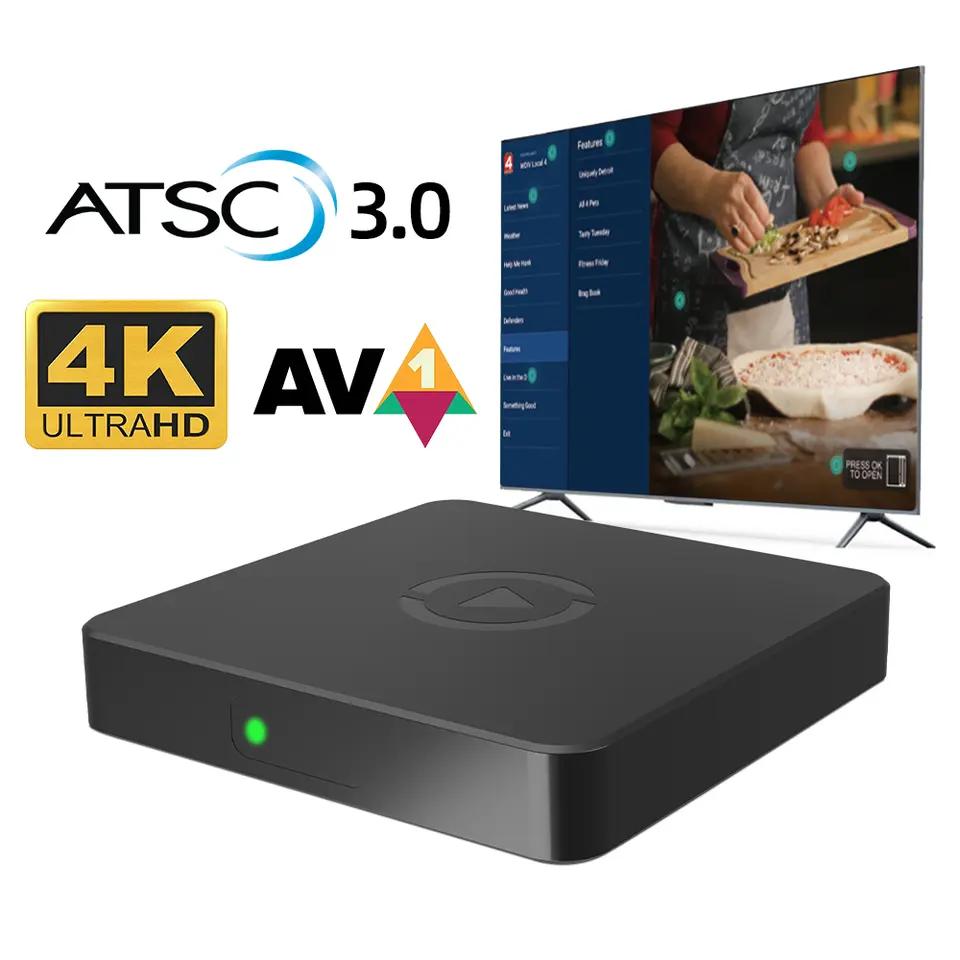

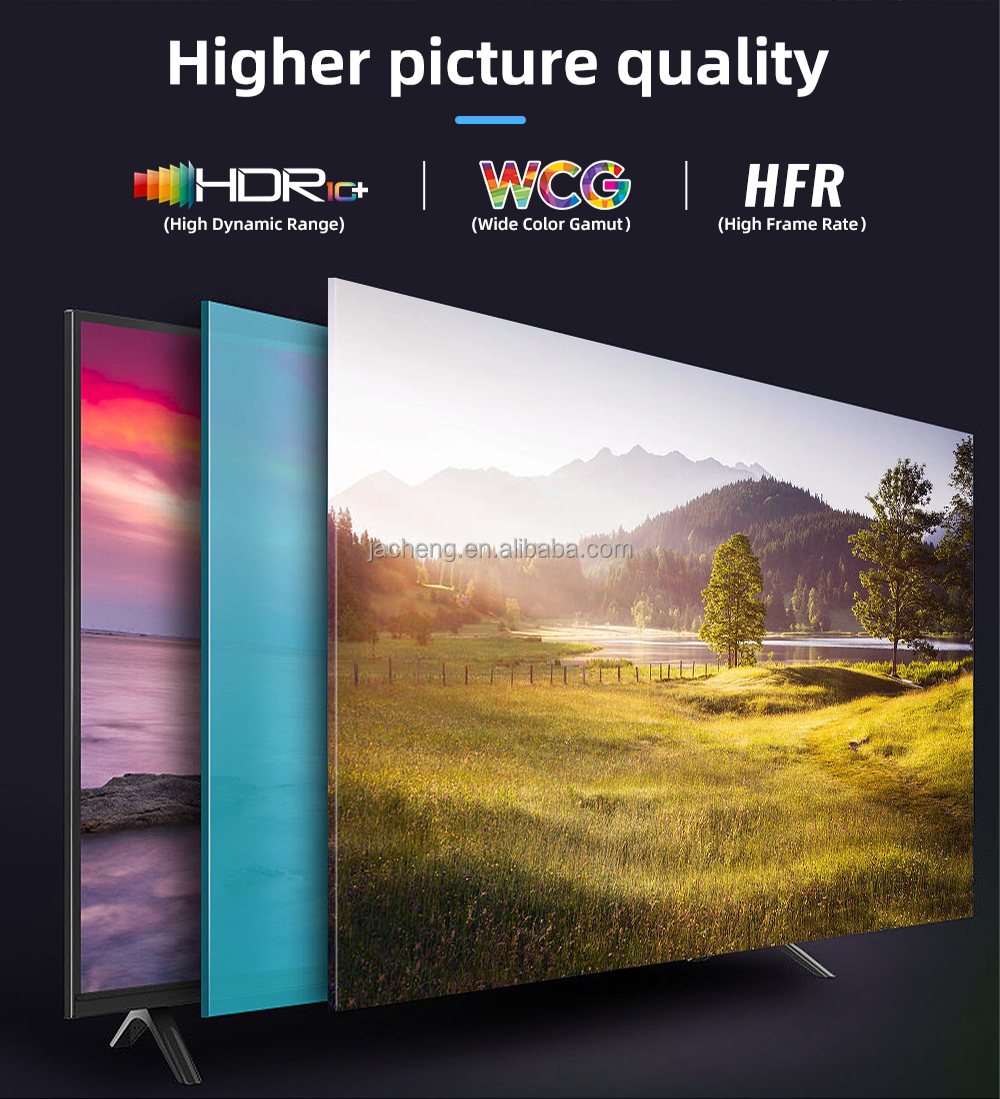
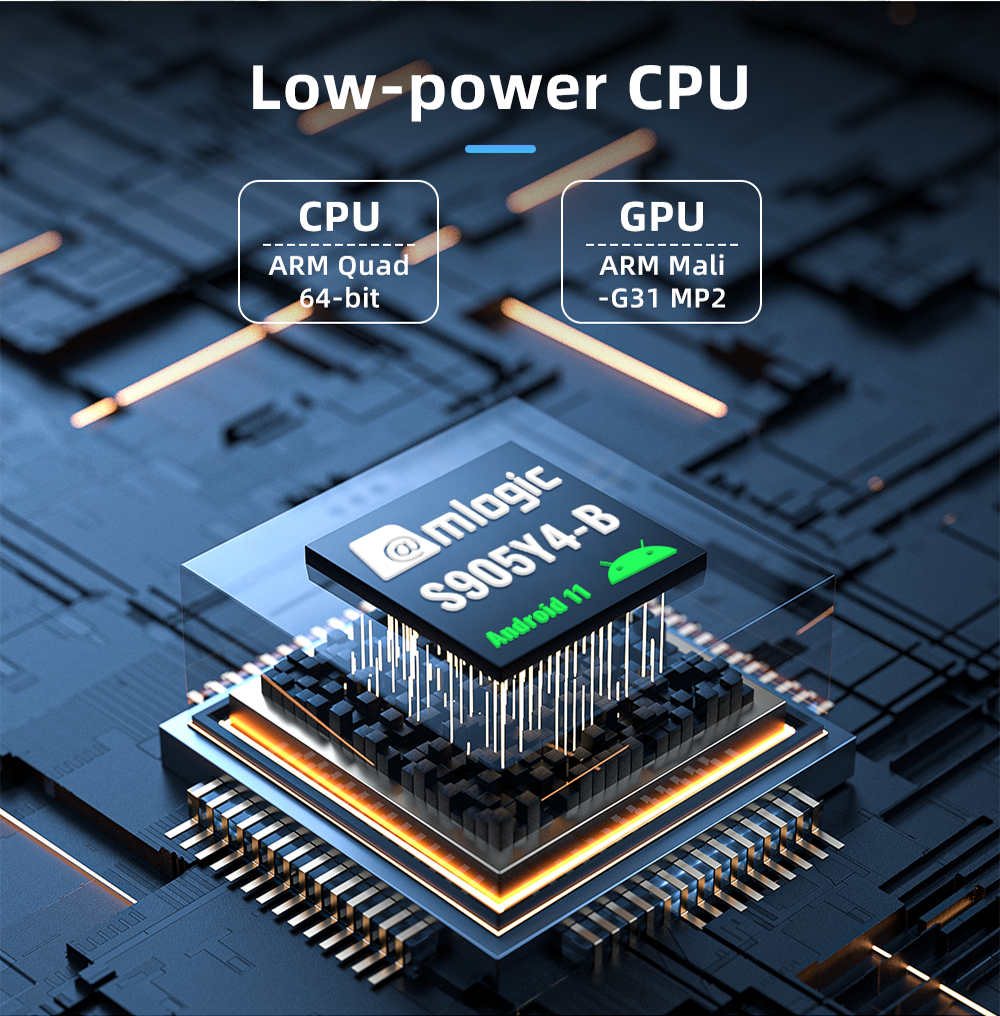
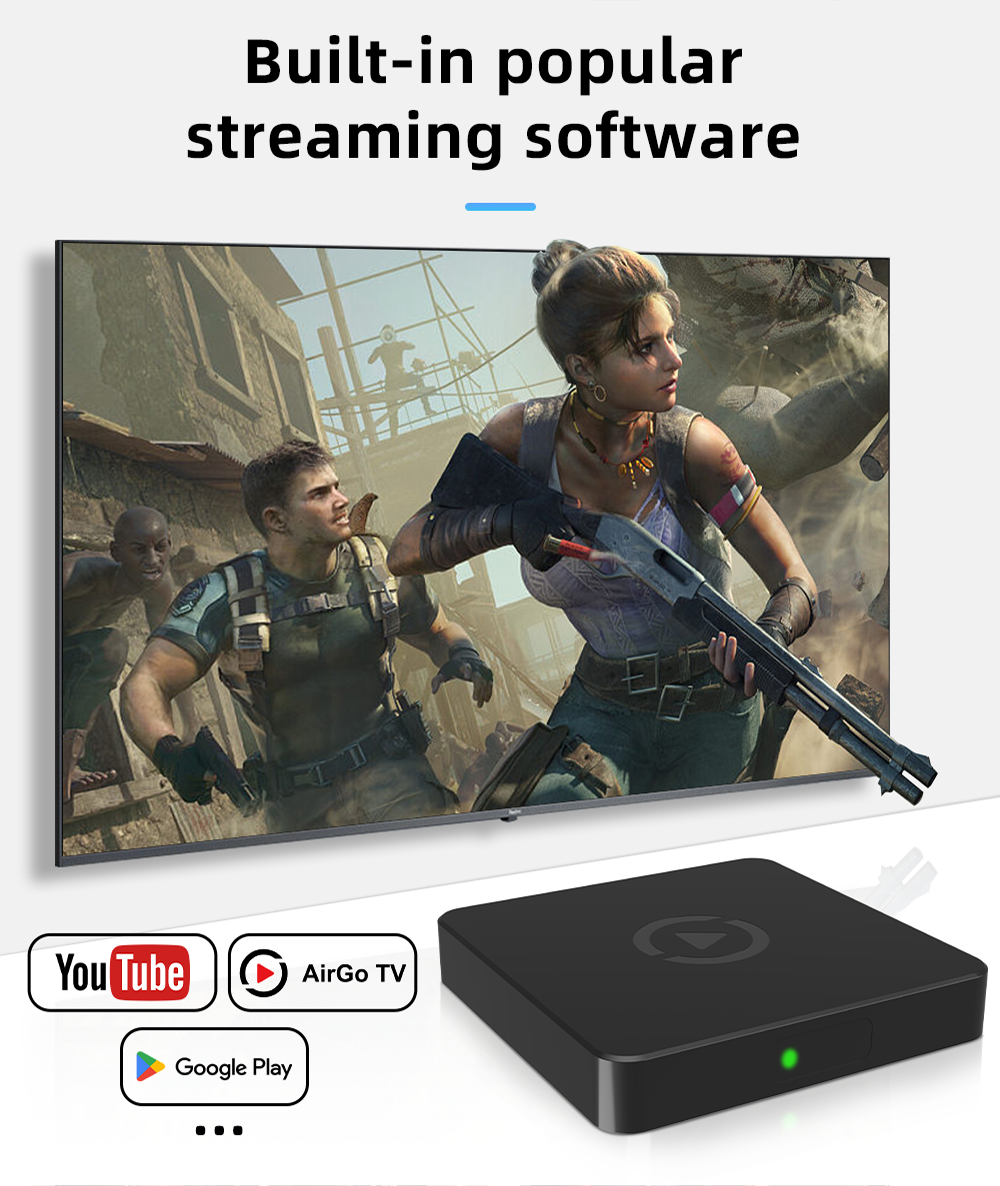
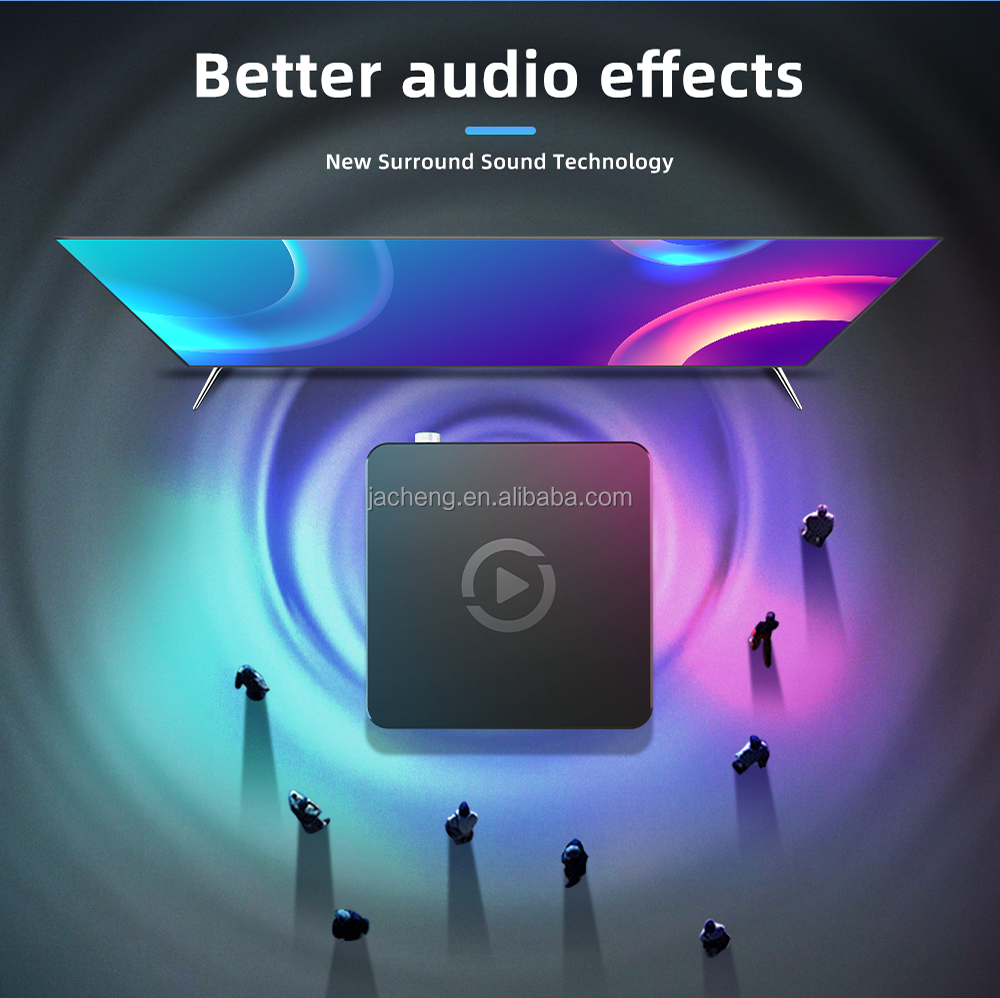
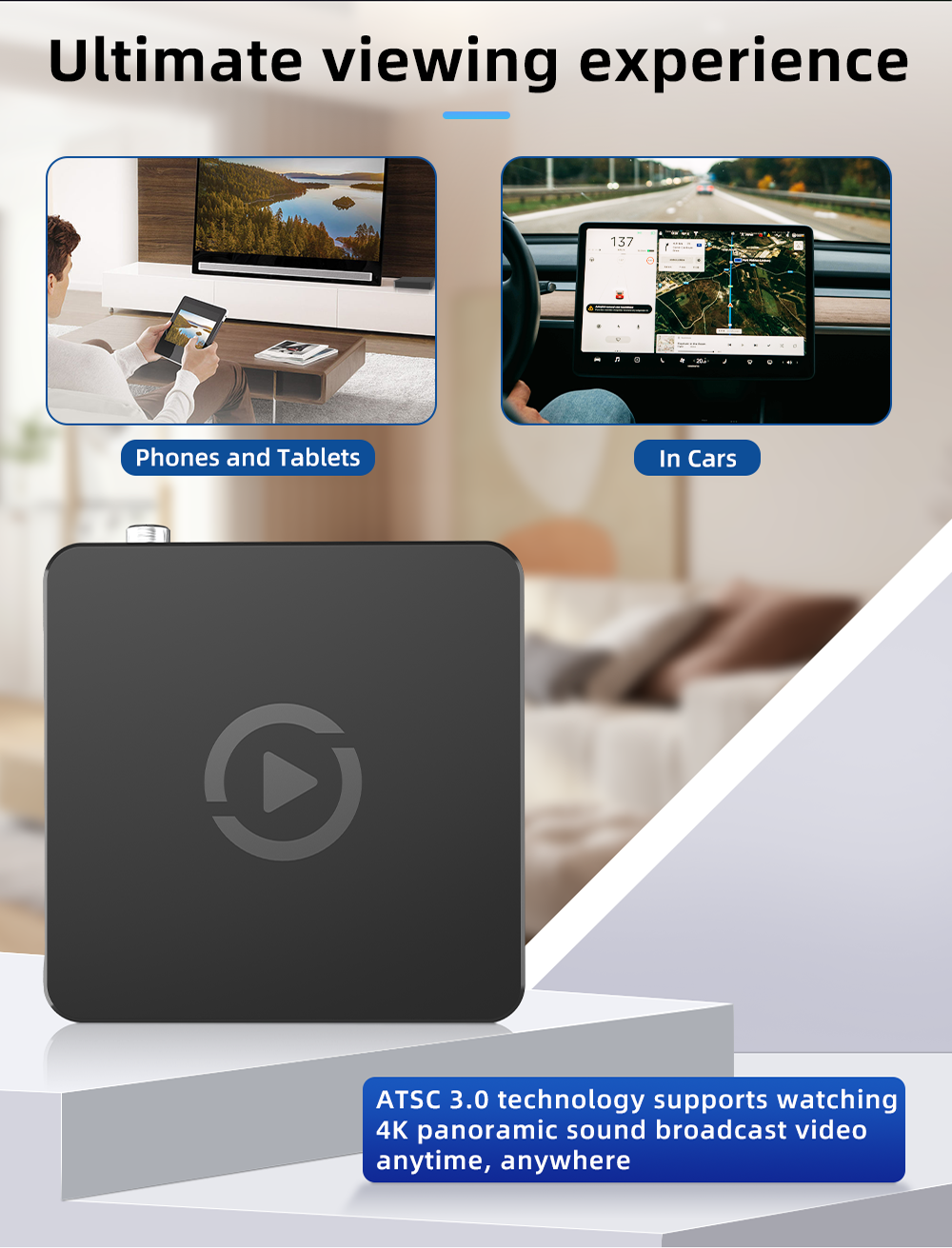
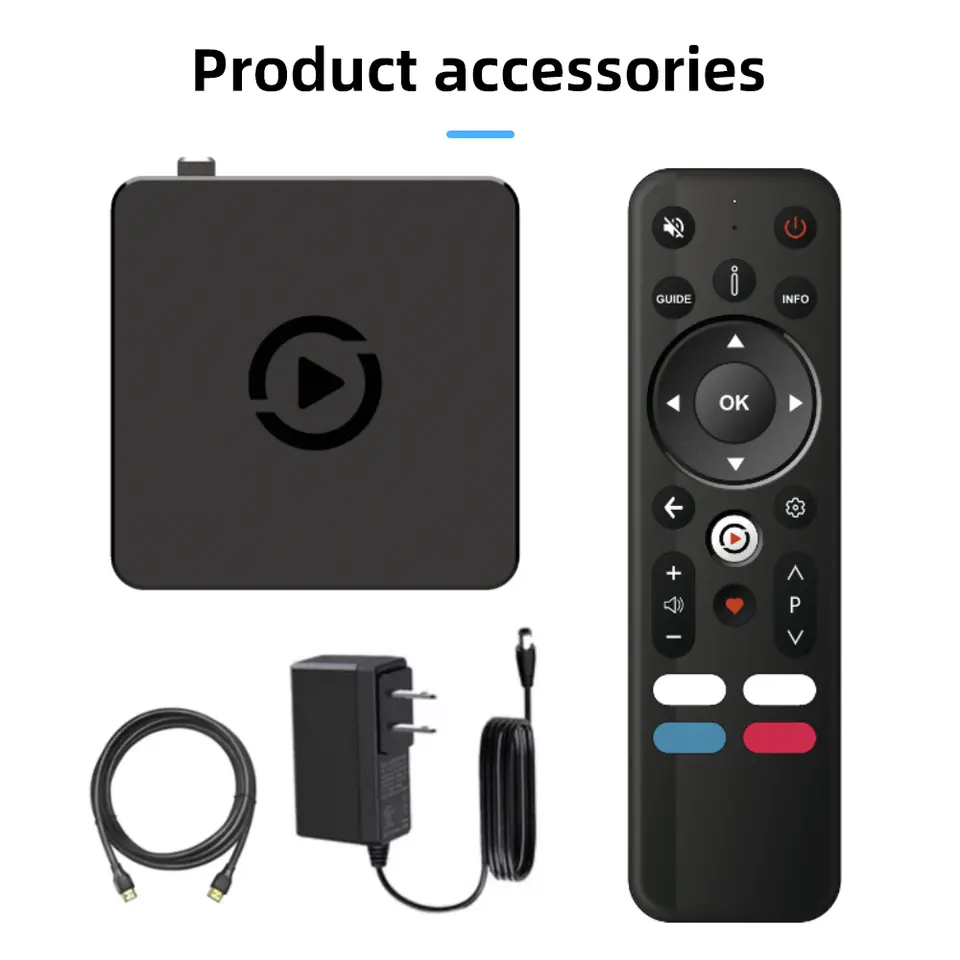
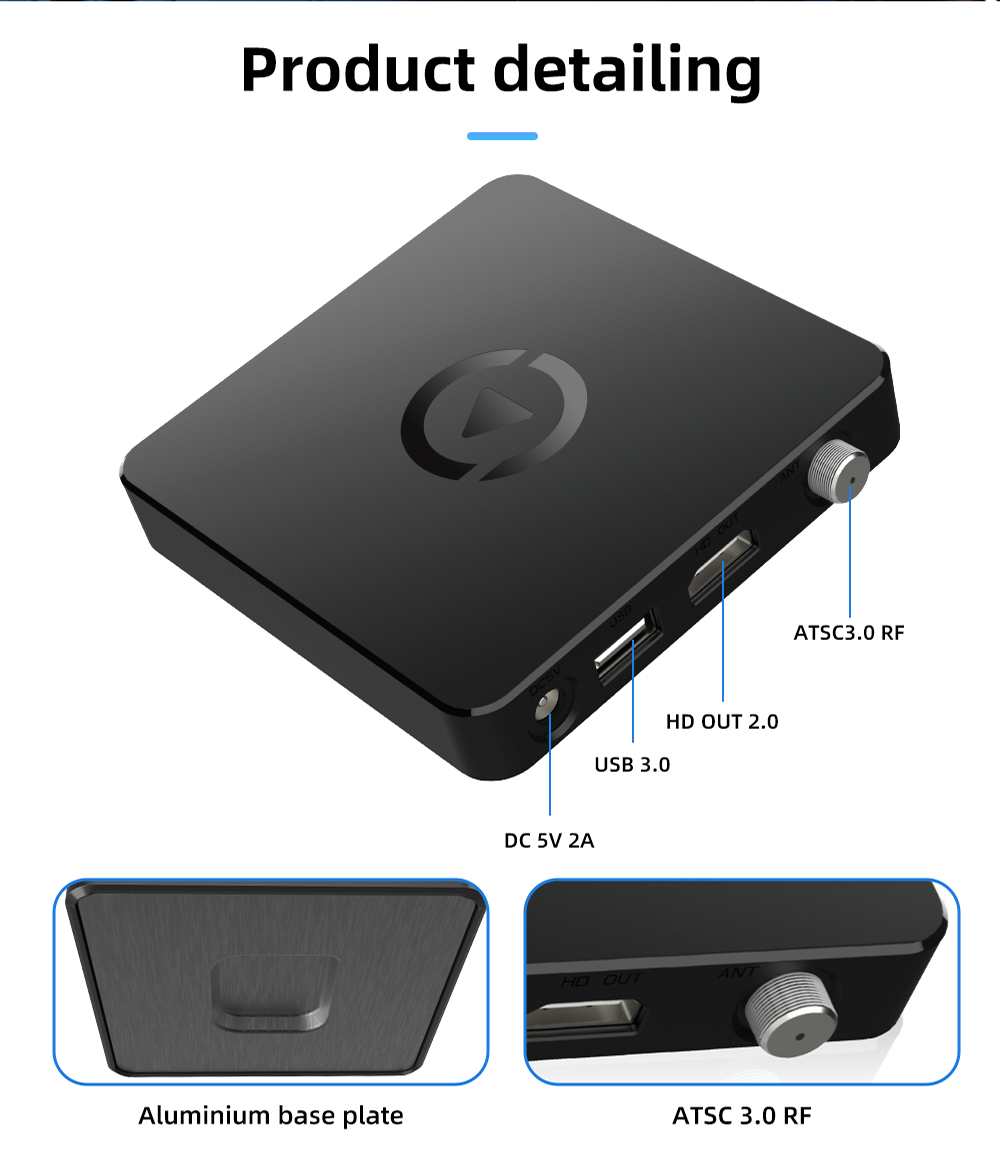
|
System
|
SoC: Amlogic S905Y4-B
|
|
|
CPU: ARM Quad 64-bit Cortex-A35
|
||
|
GPU: ARM Mali-G31 MP2
|
||
|
DRAM: LPDDR4 2GB
|
||
|
Flash: eMMC 8GB
|
||
|
OS: Android™11
|
||
|
DRM:Widevine, Playready
|
||
|
Media
|
Video Decoder:
AV1 MP-10 4K*2K@60fps,H.265 HEVC [email protected] up to 4K*2K@60fps, VP9 Profile-2 up to4K*2K @60fps, AVS2-P2 up to 4K*2K@60fps, H.264 AVC HP up to 4K*2K@30fps,MPEG-4 ASP@L5 up to 1080P@60fps, MPEG-2 MP/HL up to 1080P@60fps, MPEG-1 MP/HL up to 1080P@60f, AVS+ JiZhun Profile up to 1080P@60fps |
|
|
Video Format:
MKV,MPG,MPEG,DAT. |
||
|
Audio Decoder:
MPEG1/2, MP3, AAC/HE-AAC,FLAC, OGG, DD,DD+,Dolby AC4/AC3 |
||
|
Audio Format:
MPEG1/2,MP3,AAC |
||
|
Network
|
2×2 MIMO Wi-Fi 2.4GHz/5 GHz 802.11 a/b/g/n/ac
|
|
|
Connectivity
|
Video/Audio output:HD-MI 2.0 (support CEC)
|
|
|
USB input: USB2.0
|
||
|
Power Interface:DC 5V 2A
|
||
|
Other interface:IR Remote
|
||
|
Other
|
Input voltage:DC input 5V 2A
|
|
|
Power consumption:10W Max
|
||
|
Operation temperature:0~40℃
|
||
|
Material: Plastic & Aluminium
|
||
|
Proposed Accessory:IR Remote, HDMI Cable (1M 4K), 5V 2A DC Adapter
|
||


